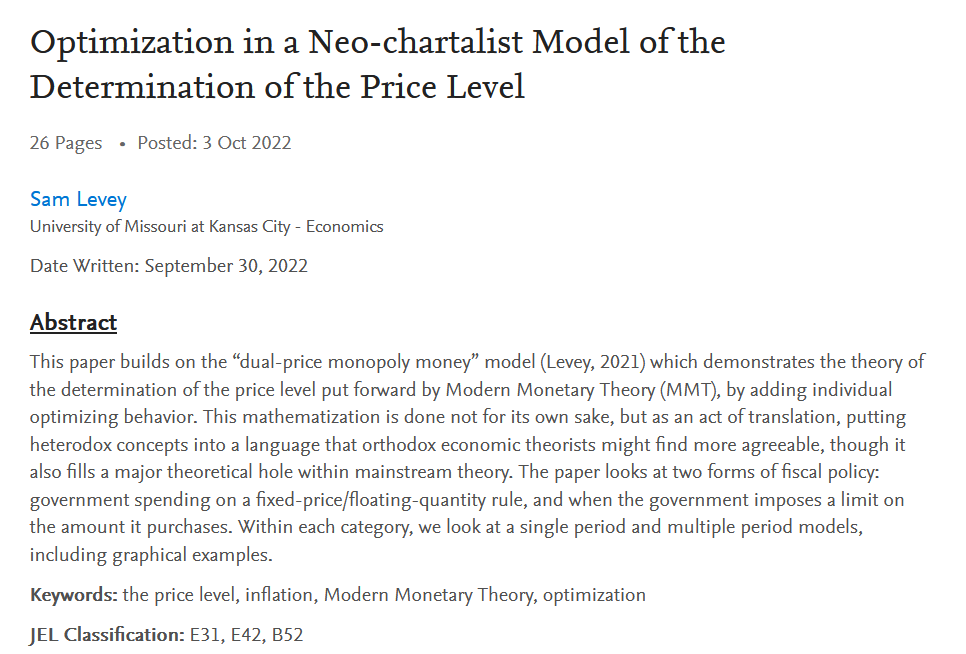In a break from the ordinary, here's some wild existential thoughts I've been pondering. (I'll return to economics tweets tomorrow)
"You" are indistinguishable from a perfect mathematical model of you. Like you, the model would be a black box that receives inputs and produces...
"You" are indistinguishable from a perfect mathematical model of you. Like you, the model would be a black box that receives inputs and produces...
output. With a sophisticated enough model, it really would be indistinguishable from you - it would answer all questions the same way, and like you it report that it "feels" and has an introspective experience. (This is related to Attention Schema Theory, which argues that if our
brains use a simplified mental model of how attention works, it would report something resembling mystical qualitative experience, just like we do.)
Now suppose that this model of you is embedded in a larger mathematical model of a universe, which determines what inputs "you"
Now suppose that this model of you is embedded in a larger mathematical model of a universe, which determines what inputs "you"
receive and folds back your outputs into environmental effects. Again, from inside this model, "you" and "the universe" would be indistinguishable from the real one. Essentially a simulation.
Ok here's the thing though: mathematical models in some sense do "exist" even if you
Ok here's the thing though: mathematical models in some sense do "exist" even if you
don't actually write them down and run it. 2+2=4 regardless of whether you write it down on paper or punch it into your calculator. Once the abstract rules of the symbols, axioms, computations etc are specified, then it is pre-determined that 2+2=4. That "exists" independently of
our efforts to calculate it. When we actually calculate it, we are "discovering" the implications of that system of rules, but the result was implied by, or contained within, the rules themselves, even if we don't actually try to discover the result. The model "exists" in some
autonomous sense. Logically this is true for all possible self-consistent models. Including the universe model. It and its results "exist" in some autonomous abstract sense, even if nobody writes it down and tries to compute the results.
So what if we are in that conceptual
So what if we are in that conceptual
universe? It's not a simulation, in the sense that nobody needs to write down the equations and run them. It exists just like 2+2=4 even when you're not thinking about it. It's an abstract system of rules that implies a set of results.
What I think is neat about this line
What I think is neat about this line
of reasoning is that it resolves the problems of space, time and nothingness: Why do space and time exist? What happened "before" time started and what happens "outside" of the universe? In this view we don't need to worry about those questions because space and time don't exist!
The universe model only has an abstract implicative existence, just like 2+2=4. There's no space or time involved. These would just be illusions to us from within the model, as the rules within the system govern how our inputs and outputs are conveyed.
Another implication is
Another implication is
that all possible self-consistent universes exist in the same sense as all others, which means we don't know which one we're in. The rules could out to be a lot crazier than we currently think, eg. maybe there is a lot of supernatural stuff lurking in the background. So long as
its self-consistent, then it would have to "exist" too, if not "here" then "somewhere."
I'm still pondering what the moral implications of this view are...
Ok that's all for now. Back to your regularly scheduled programming of money and economics tweets 😅
I'm still pondering what the moral implications of this view are...
Ok that's all for now. Back to your regularly scheduled programming of money and economics tweets 😅
• • •
Missing some Tweet in this thread? You can try to
force a refresh












